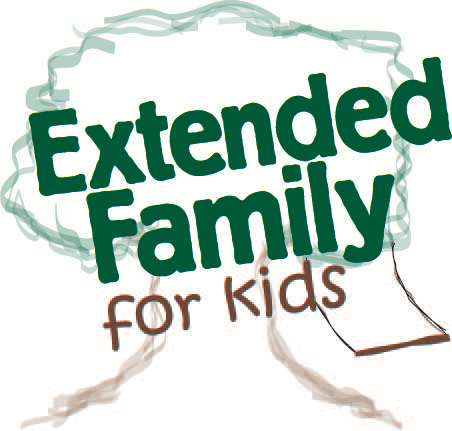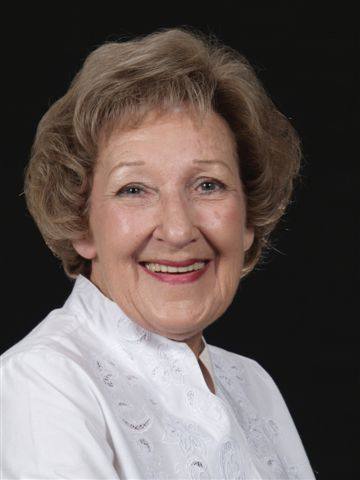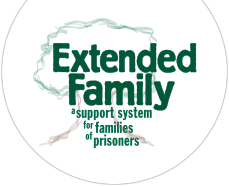For Kids - Program Summary
Session 1 – What’s Your Story?
Session 2 – Who’s to Blame?
Many children blame themselves for family problems. This session confronts the idea of blaming, through a series of activities and discussions. Students learn the family member is incarcerated because of choices and mistakes made by that person, and not because of something the student did or did not do. Extended Family for Kids students have reported this session was the most important to them. For the first time they understood, “It’s not my fault.”
Session 3 – You Are Not Alone
A guest speaker talks with the group about his experience of having a family member incarcerated during his childhood, and how he made it through successfully. A question and answer time between the students and the guest speaker encourages further connection. Students make thank you cards for the people taking care of them now (grandparents, single parent, foster families) and acknowledge that incarceration affects the grown-ups who take care of them as well as themselves.
Session 4 – We Don’t Have to Do Their Time
Both grown-ups and kids may feel like they are “doing time” along with the inmate. The group discusses examples of ways they feel like they are “doing time” along with the incarcerated loved one. A brainstorming session allows students to develop their own action steps for using healthy ways to change unhealthy behaviors. One student, put it this way – “If you didn’t do the crime, don’t do their time!”
Session 5 – COPS!
Often children have seen a family member arrested, and have developed a fear of law enforcement officials. In this session students meet a real police officer who answers the questions we have dropped into our EFK Question Box. Officers have to answer a variety of questions from the box – like “Why do you arrest parents in front of their kids?” or even “Why do cops eat so many doughnuts?” The officer tells the group about his or her job, family life, pets, and hobbies. This session is designed to humanize officers and to assist students in developing a respectful attitude toward them.
Session 6 – Can You Keep A Secret?
Students are taught a new way of resolving their anger through an almost “secret” tool called The Emotional Continuum. This tool helps kids recognize the negative emotions leading up to their anger. Communication skills are role-played, so students can practice healthy, effective ways to deal with their anger in an appropriate way, that won’t get them into trouble! Students are encouraged to “keep the secret” by continuing to practice good communication, using The Emotional Continuum approach.
Session 7 – Stress Busters
Youth experience numerous stresses in their lives: schoolwork, parents’ divorce, a family member in prison, peer pressure, exposure to drugs and alcohol, just to name a few. The physical, mental, and emotional effects of stress are explored. Students are taught 14 Stress Busters! They learn new ways to relieve pressures and tensions that accumulate. The stress of getting through holidays and special occasions without the incarcerated loved to celebrate with is covered. Tips are given for relieving stress during these family occasions.
Session 8 – Picture This
This session encourages students create goals for their own life. Kids learn they do not have to put dreams on hold due to a parent or other family member being imprisoned. Through creative outlets, kids cultivate dreams and plans for their futures. “Is there any reason you cannot accomplish this?” is the question wrestled with, as leaders assist in identifying steps needed to pursue and achieve each person’s dream. We always finish this session with one thought – “You can do this, even though you have a loved one incarcerated – that will not stop you from reaching this goal!”
Session 9 –Tell It Like It Is
Growth and progress should be celebrated in life, and we practice that philosophy in this festive session. Students share what they have learned and how they are using the tools from the previous eight EFK sessions. After refreshments and reflections, individual Certificates of Achievement are awarded to each participant. The Program Leader recognizes the strengths in each child during the presentation, giving every EFK student their moment to shine.
The Extended Family for Kids Curriculum Guide includes detailed directions for leading each session; handouts; Feedback Forms; and much more. To learn more visit our on-line Store.
Extended Family for Kids, © 2008 Extended Family

From Angel Tree Founder Mary Kay Beard

Early in its development, Extended Family for Kids was offered to schools, and was very successful. Children had an opportunity to share their anger and confusion, and find solutions. The result was improved behavior and better grades.
Extended Family for Kids is now offered in several schools. Laure also teaches other people to lead a group.
The convicted felon is by no means the only one impacted by incarceration. The statistics about the children’s reaction is both significant and life changing. As many as 70 percent of the children of inmates are most likely to have difficulties in school or become law-breakers.
This program has touched the lives of hundreds of family members as they are on a most difficult journey through incarceration.
My heart, and the hearts behind Extended Family for Kids, are closely in tune. The reasons are numerous, but the number one reason is our shared commitment to those on that journey through the prison experience.
Extended Family for Kids is a phenomenal curriculum.
Founder, Angel Tree

